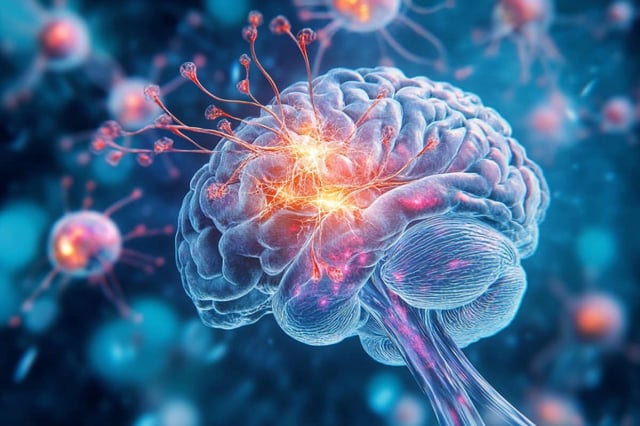Overview
- The research team examined postmortem cerebellar samples from secondary progressive MS patients and experimental autoimmune encephalomyelitis mouse models to track cellular changes
- Purkinje neurons displayed significant loss of mitochondrial protein COXIV alongside demyelination, revealing early disruptions in energy production
- Investigators found that myelin breakdown and mitochondrial impairment emerge in initial disease stages while Purkinje cell death occurs later as MS advances
- EAE mice recapitulated the human pattern of progressive Purkinje cell decline linked to failing mitochondrial function, validating the model for neurodegeneration studies
- The study proposes that therapies aimed at bolstering mitochondrial resilience may offer a promising approach to slow neurological deterioration and preserve motor coordination in MS patients
